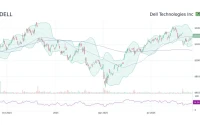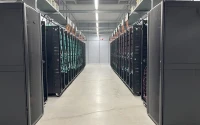I saw the headline the other day, and I’m sure you did too. “British Gas, EDF, EON, Ovo, Octopus customers to lose £100 in 'bitter pill to swallow'.” It’s a gut punch, isn’t it? Another forecast of rising bills, another squeeze on family budgets. It’s easy to read that and feel a sense of weary resignation, a feeling that we’re trapped on a treadmill of ever-increasing costs, beholden to forces far beyond our control.
But I want you to pause for a moment. Take a breath. What if that headline, and the anxiety it creates, isn’t the whole story? What if it’s just one data point in a much larger, much more exciting narrative? I’ve spent my career looking at the inflection points where technology reshapes our world, and I’m telling you, we are living through one right now. The pain you’re feeling in your energy bills isn't a sign of a system that's just broken; it's the tremor that signals a continental shift. We are witnessing the slow, messy, and often painful collapse of one energy paradigm and the birth of another.
On one hand, you have the old guard, the titans of the 20th-century model. Just look at the news that British Gas’s owner, Centrica, recently signed a massive 10-year deal for natural gas with a U.S. firm, starting in 2028. Ten years. That’s a move to lock in the past, to secure a supply chain that snakes across oceans, entirely dependent on geopolitical stability and the volatile whims of the wholesale market. It’s the energy equivalent of a record label signing a decade-long deal for CD manufacturing in the age of Spotify. It’s a bet on a world that is, frankly, already fading in the rearview mirror. This is the system that has us endlessly checking our `british gas login`, hoping the numbers haven’t jumped again, or waiting on hold with `british gas customer service` to query a bill we can’t make sense of.
Then, on the other hand, you have the force that’s causing these new price hikes. The experts at Cornwall Insight are clear: the predicted £100 rise in April 2026 isn’t just about wholesale gas prices. It’s driven by the increasing costs of making our energy grid fit for the future. They’re talking about network charges and policy costs—in simpler terms, that’s the money we have to spend to upgrade our national wiring and support new, cleaner sources of power like nuclear.
When I first read that analysis, I honestly just sat back in my chair, speechless. Not with despair, but with a sudden, shocking clarity. This is it. This is the moment. The "bitter pill" isn't a punishment; it's the investment. We are paying the upfront price for a fundamental system upgrade.
The PC Moment for Your Power Bill
The Mainframe and the Personal Computer
Think about the dawn of the computing age. For decades, computing meant massive mainframes owned by giant corporations and universities. They were incredibly expensive, centralized, and you, the individual, had no control. You were just a user, dependent on the mainframe. That is our energy grid today—a giant, centralized mainframe.
Now, what happened next? The personal computer. At first, it was a hobbyist's toy—expensive, underpowered, and dismissed by the mainframe giants. But then, Moore’s Law kicked in. They got cheaper. They got more powerful. And suddenly, the power of computing wasn't in a distant, air-conditioned room anymore. It was on your desk. It was in your hands. It was a paradigm shift from centralization to decentralization. From dependence to autonomy.
That is exactly what is happening with energy. The "network charges" and "policy costs" that are raising your bills are the price of building the new internet of energy, a grid smart enough and robust enough to handle power flowing in millions of directions at once, not just from a few giant power stations.

And what will connect to this new grid? Us. Our homes. The 2025 Hive Home Report revealed something fascinating: for the vast majority of people, the number one driver for home energy decisions is financial benefit. Not saving the planet, not grand ideology, but simple, rational economics. The cynics see this as a problem, but I see it as the solution. It’s the very mechanism that will trigger the revolution.
Because as the cost of pulling energy from the centralized "mainframe" grid continues its volatile climb, the cost of generating and storing your own energy with solar panels and home batteries continues to fall, year after year. We are hurtling toward a tipping point where installing your own home energy system isn't just a green choice; it's the cheapest, smartest financial decision you can make. It's the moment the PC becomes cheaper and better than renting time on the mainframe.
This is the future we are building, one where your home isn't just a passive consumer of energy but an active participant in the grid—selling your excess solar power back to your neighbors, charging your car overnight when electricity is cheap, and providing stability to the whole network—it’s a future of resilience and independence that is so much bigger than just a better `british gas boiler service`.
Of course, we have to be careful. As Dr. Craig Lowrey of Cornwall Insight rightly points out, there needs to be an honest discussion about supporting households through this transition. We can't build a bright future on the backs of those who can least afford the "upfront price tag." Targeted social tariffs and support are not just options; they are a moral necessity to ensure this revolution is for everyone. It's our moment of ethical consideration, a reminder that a smarter system must also be a fairer one.
I see the chatter online, the sparks of this realization catching fire. People on forums talking about how their home battery is already saving them hundreds of pounds, insulating them from the price cap rollercoaster. They’re sharing tips, building a distributed knowledge base, and proving the concept in real-time. They know we need more than a metaphorical `ww1 british gas mask` to protect us from the toxic volatility of global markets; we need a whole new system. This isn't a distant dream. It's happening now, in garages and on rooftops, all across the country.
So yes, the next bill might be higher. It’s a bitter pill. But it’s not the poison of a dying system. It’s the vitamin that fuels the birth of a new one.
---
The Price of Our Independence
This isn’t about a price cap. It’s about being uncapped. For a century, we have been renters in our own energy system, subject to the whims of global markets and lumbering giants. The rising costs we see today are not a fine; they are a down payment. We are not just paying for kilowatts; we are buying our freedom. We are funding the construction of a future where our homes are our power stations, our communities are our grids, and our energy bills finally, truly, belong to us.
Reference article source:









